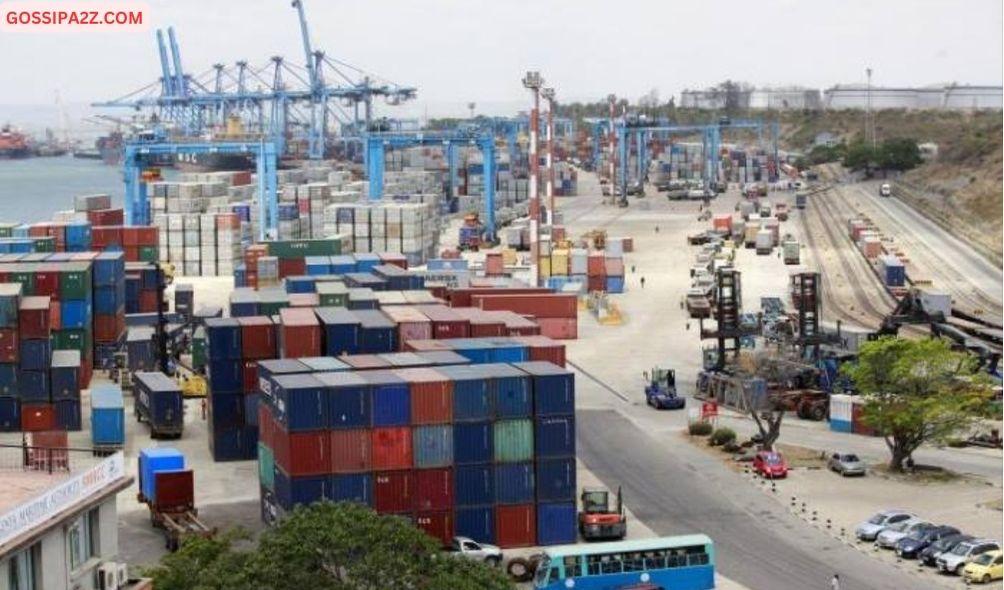Court halts privatization of Mombasa, Lamu ports
The High Court has temporarily stopped the plan by President William Ruto’s government to privatize Mombasa and Lamu ports after a petition by residents of the region who claim that the sale was a ploy to take over the management and assets of the Kenya Ports Authority (KPA).
Justice Chacha Mwita of the Milimani High Court in Nairobi issued the interim orders on Monday, November 27, and gave the government three days to respond, with further orders set to be issued on December 6.
The Taireni Association of Mijikenda filed a petition at the High Court on Monday, November 27, seeking conservatory orders against the government to privatize Container Terminal 1, berths 11-14 at Container Terminal 1 at Port of Mombasa and 1-3 berths at Lamu Port.
The same association had sought to stop the privatization of Container Terminal 2 (CT2) at the Port of Mombasa when a similar plan was mooted in 2019.
The association stated that the move to privatize the Mombasa port was a plan by some government operatives and cartels working hard to take over the management of the Kenya Ports Authority (KPA).
Taireni Association of Mijikenda moved to court after efforts to seek dialogue with the government following plans to privatize the ports failed.
This was after KPA floated the tender on October 17 this year. “This application seeks for grant of a conservatory order to stop /stay and or suspend the Tender Notice No KPA /052/2023- 2024/CPS, dated 17/10/2023 issued by Kenya Ports Authority to transfer/dispose of the public assets held by it on behalf of the public to private investors who have purportedly been invited to bid operate them and when successful to be allowed to operate those assets contrary to the constitution and the Law,” the petitioners said.
Constitutional impropriety
According to the Taireni Association of Mijikenda National Chairperson, Mr. Peter Ponda, the process of privatization of the Mombasa and Lamu ports was “tainted with substantive and constitutional impropriety”.
He said the targeted berths for transfer were fully developed from public funds and are operational.
The government, through the Kenya Ports Authority, has commenced the disposal of the berths at the Mombasa and Lamu Ports through Public Private Partnership, Act, 2022.
“It is clear that there are clear public contributions as the said investors are coming to take over already developed berths,” he said.
He argued that because of the capital contributions, the Public Procurement and Assets Disposal Act, 2015 was meant to apply, and thus the provisions of the Public Private Partnership Act which the government and KPA have failed to consider.
“The Kenya Ports Authority has purported to dispose of the public assets held by it under the provisions of Section 4 of the Public Private Partnership Act, 2022 which was not intended but the dictates of article 227(2) of the constitution, to be applicable for the disposing of a public asset, rather guide on the procedures of controlling and contracts between the government on projects undertaken and financed by exclusively by private investors,” he said.
ALSO READ:
- Raila Ally Breaks Silence After Ruto-Uhuru Meeting
- Gachagua Close Ally Karungo Wa Thang’wa Accepts Ruto’s CBS Award
- Gov’t to Release Ksh.32 Billion to Counties Next Week – DP Kindiki
- High Court Strikes Down Ruto-Raila 2023 IEBC Amendment Bill
- Kenya Water Towers Agency Dissolved: Government Moves to Streamline State Corporations
Mr. Ponda said the application of the Public Private Partnership Act, 2022, and the Public Procurement and Asset Disposal Act, 2015 must be clearly and distantly set apart so that the government does not apply them whimsically and to defeat the spirit of a letter of the constitution.
“It must remain applicable to projects undertaken by the private investors and later for disposal of public assets, but not the two acts to be applied alternately,” he added.
The chairperson further said KPA had to date developed three fully functional ports in Mombasa, Kisumu, and Lamu, with an asset base running into hundreds of billions of shillings, including land, machinery, equipment, and infrastructural developments.
KPA has also employed about 10,000 staff enabling it to meet its obligations to the public and other business enterprises across the Eastern parts of Africa, such as Uganda, Rwanda, Burundi, Congo DRC, and South Sudan amongst others, with a net profit between Sh20 billion and 30 billion annually.
Mr Ponda said the tender documents have equally roped in the Special Economic Zones, which are public land either compulsorily acquired by the government and owners of these lands compensated from consolidated funds or already belonged to Kenya Ports Authority.
“It is estimated that berths 16-18 at Container Terminal 2 of
Mombasa port cost the public a whopping Sh30 billion to construct while the recently constructed Lamu berths cost up to Sh60 billion,” he said.
Court halts privatization of Mombasa, Lamu ports
